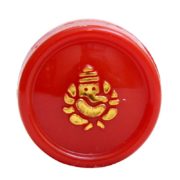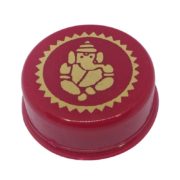Injuries can happen to anyone, anywhere, and at any time. Sometimes, we might not even realize we’ve hurt ourselves until later, leading to what’s known as a misplaced injury. These injuries can cause discomfort and pain, affecting our daily lives. One simple and natural remedy that many people turn to for relief is Epsom salt, particularly in the form of a body wash. In this post, we’ll explore the benefits of using Epsom salt body wash for misplaced injuries and how it might help you feel better.
What is Epsom Salt?
Before we dive into the benefits, let’s understand what Epsom salt is. Despite its name, Epsom salt isn’t actually salt like the kind we eat. It’s a mineral compound made of magnesium and sulfate. It gets its name from the town of Epsom in England, where it was first discovered in spring waters.
Epsom salt has been used for hundreds of years as a natural remedy for various ailments, including muscle soreness, stress relief, and skin problems. It’s easily available in most drugstores and can be used in different ways, including as a bath soak or body wash.
What are Misplaced Injuries?
Misplaced injuries are those that we might not notice right away. They can happen during everyday activities or sports. For example, you might twist your ankle slightly while walking but not feel the pain until the next day. Or you could strain a muscle during a workout and only notice the soreness hours later. These injuries can be tricky because we might not remember exactly how or when we got hurt.
How Can Epsom Salt Body Wash Help?
Now, let’s look at how Epsom salt body wash might benefit misplaced injuries:
- Reduces Inflammation: One of the main benefits of Epsom salt is its ability to reduce inflammation. When you have a misplaced injury, the area often becomes swollen and painful. The magnesium in Epsom salt can help lower inflammation, which may ease discomfort and speed up healing.
- Eases Muscle Pain: Epsom salt is well-known for its ability to relieve muscle pain. Whether you’ve strained a muscle or are dealing with general soreness, using an Epsom salt body wash might help relax tense muscles and reduce pain.
- Improves Circulation: Good blood flow is important for healing. Epsom salt can help improve circulation, which means more oxygen and nutrients can reach the injured area. This might help your body recover faster.
- Relaxes the Body: Stress can make pain feel worse. Epsom salt has a calming effect on the body and mind. Using it in a body wash can help you relax, which might make dealing with the pain of a misplaced injury easier.
- Provides Magnesium: Our bodies need magnesium for many functions, including muscle and nerve health. Some people believe that magnesium from Epsom salt can be absorbed through the skin, potentially helping with overall health and recovery.
- Gentle Exfoliation: The slightly grainy texture of Epsom salt can act as a gentle exfoliant. This can help remove dead skin cells and improve skin health, which might be beneficial if your misplaced injury affects your skin.
How to Use Epsom Salt Body Wash
Using Epsom salt as a body wash is simple:
- Mix Epsom salt with your regular body wash or shower gel.
- Gently massage the mixture onto your skin, paying extra attention to sore areas.
- Rinse thoroughly with warm water.
- Use this method a few times a week or as needed.
Remember, it’s best to use lukewarm water rather than very hot water, especially if you have inflammation. Hot water can sometimes make swelling worse.
Things to Keep in Mind
While Epsom salt body wash can be helpful for many people, it’s important to remember a few things:
- It’s not a cure-all: While it may help with symptoms, Epsom salt isn’t a substitute for proper medical care. If you have a serious injury or ongoing pain, it’s important to see a doctor.
- Allergies: Some people might be allergic to Epsom salt. If you notice any skin irritation or other allergic reactions, stop using it and consult a healthcare professional.
- Open wounds: Avoid using Epsom salt on open cuts or wounds, as it might cause irritation.
- Certain health conditions: If you have diabetes, heart problems, or kidney issues, talk to your doctor before using Epsom salt, especially in large amounts.
- Pregnancy: If you’re pregnant, check with your healthcare provider before using Epsom salt products.
Other Ways to Use Epsom Salt
Besides using it as a body wash, there are other ways to use Epsom salt for misplaced injuries:
- Bath soak: Add Epsom salt to your bathwater for a relaxing soak.
- Compress: Make a warm compress with Epsom salt solution to apply to sore areas.
- Foot soak: If your injury is in your feet or lower legs, try an Epsom salt foot bath.
Conclusion
Epsom salt body wash can be a helpful tool in managing the discomfort of misplaced injuries. Its potential to reduce inflammation, ease muscle pain, improve circulation, and promote relaxation makes it a popular choice for many people dealing with minor aches and pains.
However, it’s crucial to remember that while Epsom salt can be beneficial, it’s not a replacement for professional medical advice or treatment. If you’re dealing with persistent pain or a severe injury, it’s always best to consult with a healthcare provider.
Using Epsom salt body wash is a simple, affordable, and natural way to potentially ease the discomfort of misplaced injuries. Whether you’re an athlete dealing with post-workout soreness or someone managing the aches and pains of daily life, it might be worth giving Epsom salt a try as part of your self-care routine.
Remember, everyone’s body is different, and what works for one person might not work for another. Listen to your body, and don’t hesitate to seek professional help if you need it. Stay safe, take care of yourself, and here’s to feeling better soon!
FAQs
Q1. How often should I use Epsom salt body wash for my injury?
A: You can use Epsom salt body wash 2-3 times a week or as needed. If you have sensitive skin or are new to using Epsom salt, start with once a week and gradually increase if you don’t experience any negative reactions. Always listen to your body and stop if you notice any irritation.
Q2. Can I use Epsom salt body wash on any type of injury?
A: Epsom salt body wash is generally safe for minor injuries like muscle strains, bruises, or general soreness. However, it’s not suitable for open wounds, cuts, or burns. If you have a serious injury or aren’t sure about your condition, it’s best to consult with a healthcare professional before using Epsom salt.
Q3. How long does it take to see results from using Epsom salt body wash?
A: The effects can vary from person to person. Some people might feel relief after the first use, while others might need to use it regularly for a week or more to notice benefits. If you don’t see any improvement after a few weeks of regular use, consider consulting with a healthcare provider about other treatment options.
Q4. Is Epsom salt body wash safe for everyone to use?
A: While Epsom salt is generally safe for most people, some individuals should be cautious. People with diabetes, kidney problems, or heart conditions should consult their doctor before using Epsom salt products. Pregnant women should also check with their healthcare provider first. If you have very sensitive skin or are prone to allergies, do a patch test before using it all over your body.
Q5. Can Epsom salt body wash replace medical treatment for injuries?
A: No, Epsom salt body wash should not replace proper medical treatment for injuries. While it can help with minor aches and pains, it’s not a cure for serious injuries. If you have severe pain, swelling that doesn’t go down, or an injury that doesn’t improve with home care, you should seek medical attention. Epsom salt body wash can be a complementary treatment, but it shouldn’t be your only approach to managing injuries.





[…] Injuries can happen to anyone, anywhere, and at any time. Sometimes, we might not even realize we’ve hurt ourselves until later, leading to what’s known as a misplaced injury. These injuries can cause discomfort and pain, affecting our daily lives. […]